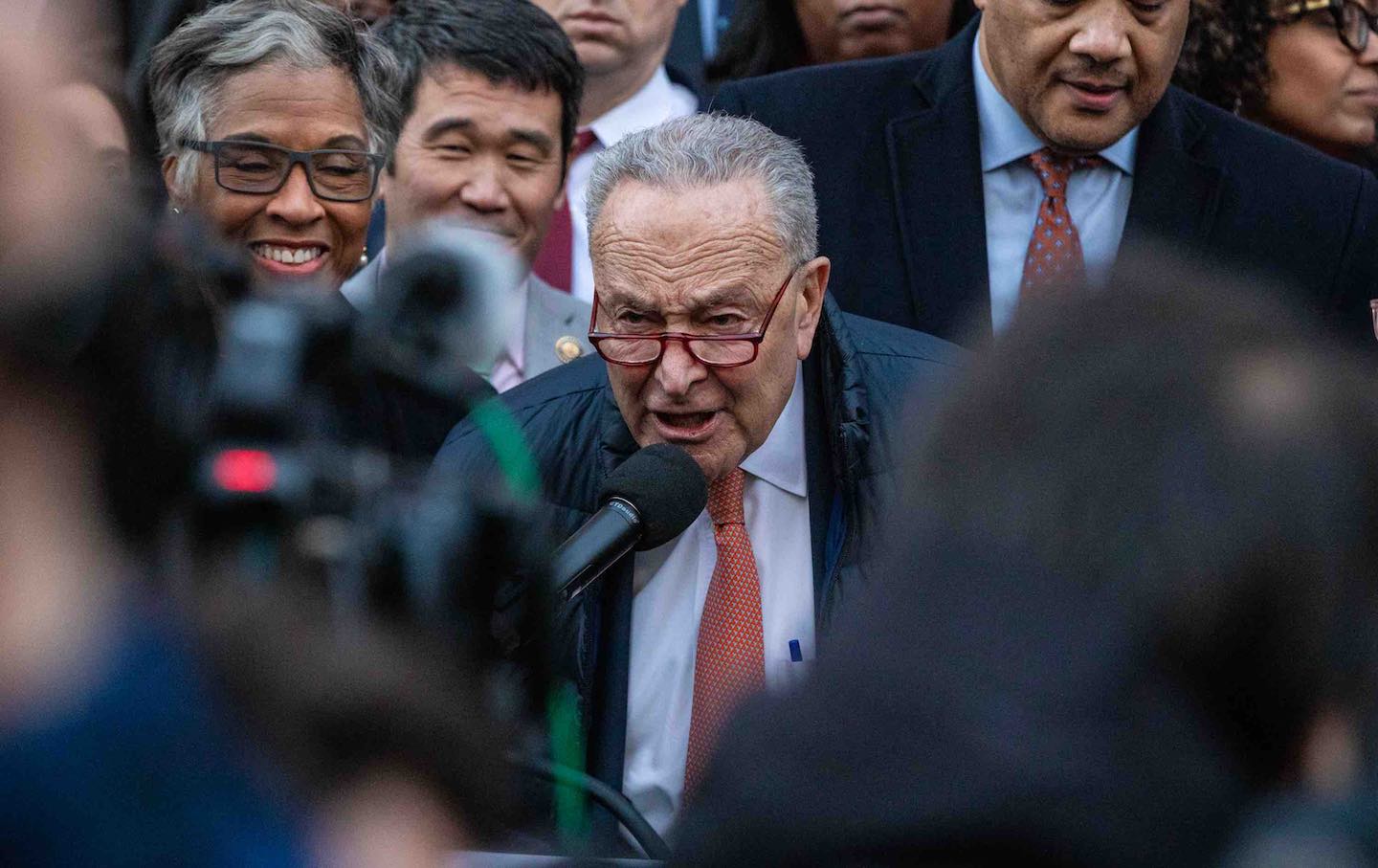Chuck Schumer’s Flight-Over-Fight Instinct Is Leaving Democrats in the Lurch

```html
Schumer's Surrender: Why the Democrats' Spending Fight Capitulation is a Self-Inflicted Wound
A Feckless Response to an Unprecedented Crisis
Chuck Schumer's leadership during the Trump-Musk assault on the public sector has been nothing short of disastrous. His early attempts at rallying protestors were met with derision, highlighting a concerning lack of strategy within the Democratic party. Now, his decision to cave to Republican pressure on government spending has cemented that perception.
Instead of leveraging the Democrats' position, Schumer opted for a pro forma funding extension, effectively handing the Republicans a victory. While he secured a minor amendment restoring funding for Washington D.C., the overall outcome reinforces the image of a Democratic leadership adrift in a sea of Republican maneuvering.
A Flawed Justification for Retreat
Schumer's defense of his actions hinges on the claim that a government shutdown would be worse than capitulating to Republican demands. He argues that a shutdown would empower Trump and Musk to dismantle government services even faster. However, this argument ignores the reality of the situation: the Trump administration is already dismantling government services at an alarming rate.
"There are no winners in a government shutdown," Schumer wrote in a New York Times op-ed. A sentiment perhaps true in normal times, but utterly inadequate in the face of the current crisis.
Schumer’s logic fails to grasp the fundamental shift in the political landscape. The Trump-Musk administration has already effectively shuttered agencies, slashed funding, and fired countless federal workers. In this context, acquiescing to the GOP spending plan only emboldens their destructive behavior.
Debating Damage vs. Taking Action
Schumer's further justification – that a shutdown would distract from debating the damage caused by the Trump agenda – rings hollow. "Debating the damage" has been the Democrats' primary mode of operation for years, with little to show for it. From the Mueller investigation to two impeachments, the Democrats have prioritized procedural maneuvers over decisive political action.
Forcing a confrontation over spending priorities is not a distraction; it's the core of the current political crisis. The GOP's own rhetoric confirms this. Vice President JD Vance openly admitted the spending measure was designed to allow the White House to continue slashing expenditures. The Trump administration, emboldened by the Democrats' inaction, is already planning further cuts, even challenging the legality of the Impoundment Control Act.
The Devastating Consequences of Inaction
The continuing resolution, championed by Schumer, contains damaging provisions, including significant cuts to health research and the National Institutes of Health. Dismissing these cuts as a "distraction" is not only callous but demonstrates a profound disconnect from the real-world consequences of these decisions.
Even moderate Democrats are now criticizing Schumer’s surrender, with some calling for his resignation. This widespread condemnation underscores the depth of the Democrats' strategic failure. As Sahil Kapur, NBC Hill correspondent, observed, the Democrats' strategy (or lack thereof) was a "discombobulated mess."
A Self-Inflicted Wound
The Republicans' confidence in their victory stems not only from their own maneuvering but also from the Democrats' predictable pattern of inaction. The Trump administration feels no pressure to compromise because they know the Democrats are led by those who seemingly abhor political confrontation.
Ultimately, the Democrats are not being defeated by the GOP; they are being defeated by their own lack of leadership and strategic vision. Until they change course, their cries of "We will win!" will continue to ring hollow.